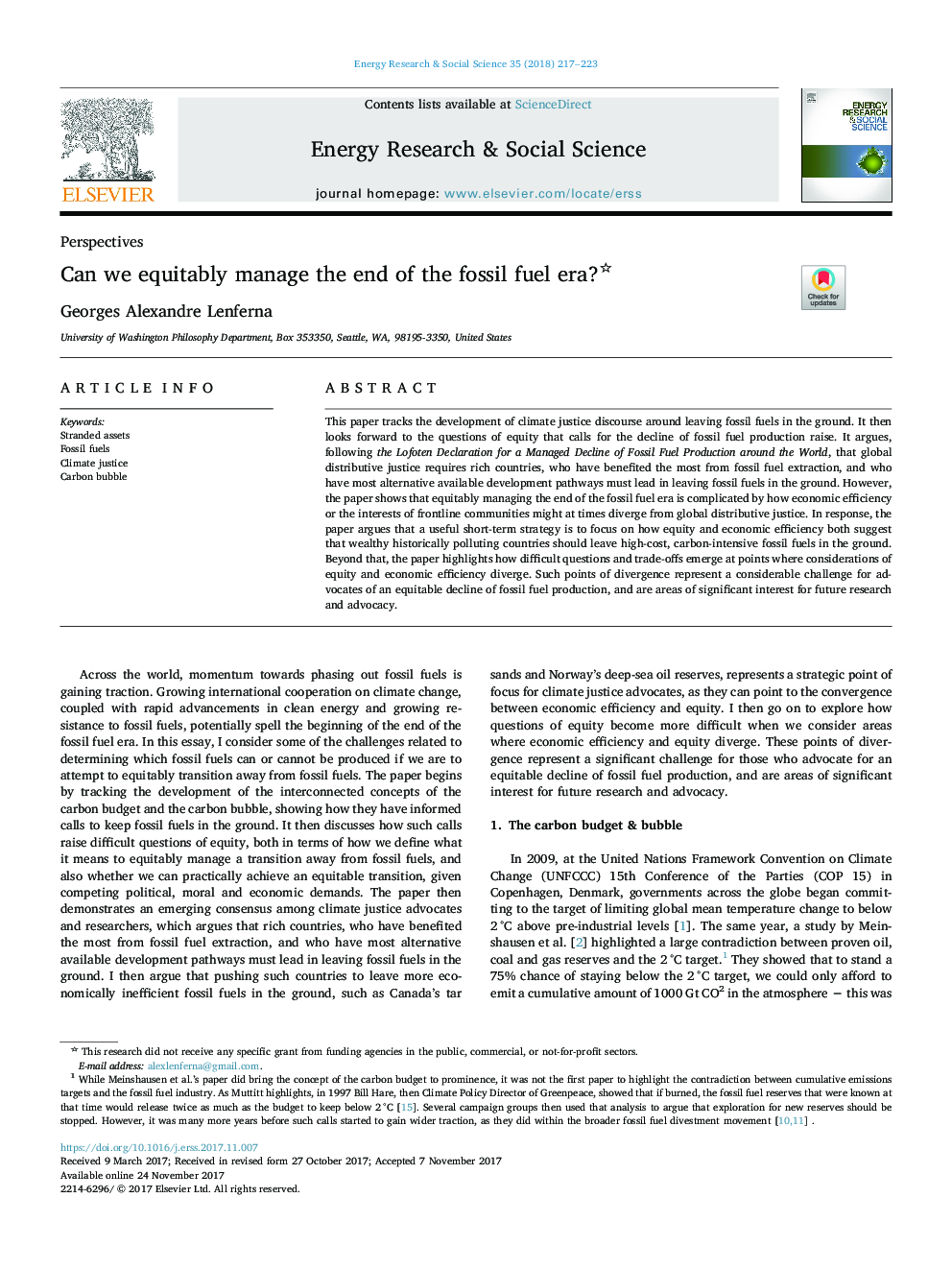| Article ID | Journal | Published Year | Pages | File Type |
|---|---|---|---|---|
| 6557792 | Energy Research & Social Science | 2018 | 7 Pages |
Abstract
This paper tracks the development of climate justice discourse around leaving fossil fuels in the ground. It then looks forward to the questions of equity that calls for the decline of fossil fuel production raise. It argues, following the Lofoten Declaration for a Managed Decline of Fossil Fuel Production around the World, that global distributive justice requires rich countries, who have benefited the most from fossil fuel extraction, and who have most alternative available development pathways must lead in leaving fossil fuels in the ground. However, the paper shows that equitably managing the end of the fossil fuel era is complicated by how economic efficiency or the interests of frontline communities might at times diverge from global distributive justice. In response, the paper argues that a useful short-term strategy is to focus on how equity and economic efficiency both suggest that wealthy historically polluting countries should leave high-cost, carbon-intensive fossil fuels in the ground. Beyond that, the paper highlights how difficult questions and trade-offs emerge at points where considerations of equity and economic efficiency diverge. Such points of divergence represent a considerable challenge for advocates of an equitable decline of fossil fuel production, and are areas of significant interest for future research and advocacy.
Related Topics
Physical Sciences and Engineering
Energy
Energy (General)
Authors
Georges Alexandre Lenferna,
